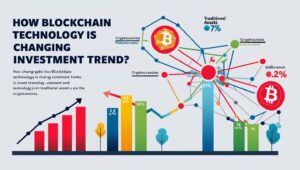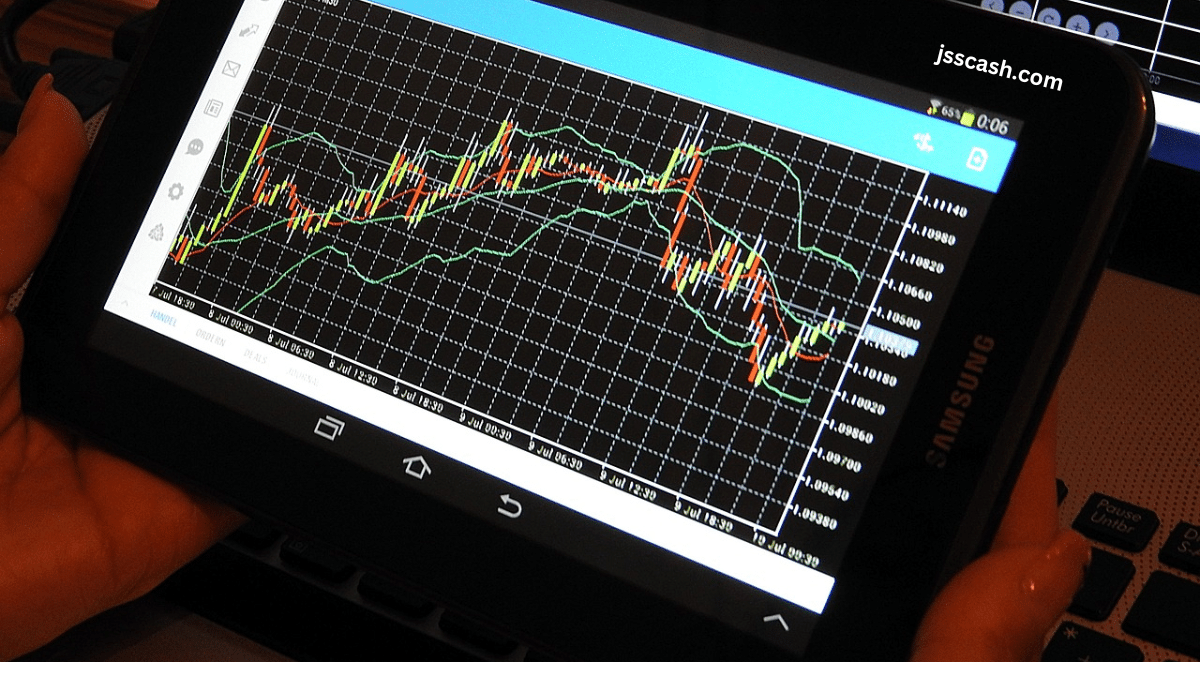Blockchain technology, initially introduced as the foundation for cryptocurrencies like Bitcoin, has rapidly evolved into a transformative force across various industries. Among the sectors experiencing a significant shift is the investment landscape. Once dominated by institutional players and high-net-worth individuals, the world of investing is becoming more inclusive, efficient, and innovative—thanks to blockchain.
With its decentralized architecture, transparent record-keeping, and secure infrastructure, blockchain is reshaping how investors approach markets, manage portfolios, and engage with new types of digital assets. In this comprehensive guide, we’ll explore how blockchain is changing investment trends, what it means for the future of finance, and how investors—both seasoned and novice—can leverage these opportunities.
1. Democratization of Investments
Historically, access to high-value investment opportunities—such as real estate, fine art, and venture capital—was limited to affluent individuals or large financial institutions. This exclusivity created a gap in wealth accumulation, leaving small investors with limited options.
Enter tokenization. Blockchain enables the conversion of physical and digital assets into tradable tokens. These tokens represent fractional ownership of the underlying asset, allowing smaller investors to gain exposure to asset classes previously beyond their reach.
Example: Fractional Real Estate Ownership
Through blockchain-based platforms, a $2 million property can be tokenized into 2 million tokens priced at $1 each. Investors from anywhere in the world can purchase as many tokens as they can afford, gaining proportional ownership and earning potential rental income or appreciation benefits.
This democratization not only opens doors for a broader population but also improves asset liquidity and accessibility, fundamentally changing the traditional investment model.
2. Increased Transparency and Security
One of blockchain’s most compelling features is its immutable and transparent nature. Every transaction is recorded on a distributed ledger that cannot be altered or deleted without consensus from the network.
This radical transparency brings numerous benefits:
- Fraud reduction: With verifiable transaction histories, it’s much harder to manipulate data or commit fraud.
- Investor confidence: Transparent records increase trust in financial platforms and reduce the information asymmetry between parties.
- Smart contracts: These self-executing codes on the blockchain automate investment processes, such as dividend payouts or compliance checks, reducing the need for third-party enforcement and minimizing human error.
In sectors like private equity or real estate, where traditional record-keeping can be opaque or vulnerable to manipulation, blockchain provides a layer of accountability and reliability previously unavailable.
3. Reduced Costs and Faster Transactions
Traditional financial transactions often involve a network of intermediaries—banks, brokers, escrow services, and clearinghouses—that add layers of complexity, time delays, and fees.
Blockchain streamlines this process by enabling peer-to-peer interactions, removing middlemen and significantly cutting transaction costs. Settlements that once took days can now be executed in minutes or even seconds.
Real-World Application:
- Decentralized exchanges (DEXs) like Uniswap or PancakeSwap allow users to trade digital assets directly with one another using smart contracts.
- Cross-border payments via blockchain networks like Stellar or Ripple bypass traditional SWIFT systems, offering near-instant transfers at a fraction of the cost.
This cost-efficiency is particularly beneficial in international investing, where currency conversion and transfer fees can erode profits.

4. The Rise of Decentralized Finance (DeFi)
Decentralized Finance, or DeFi, is a blockchain-based financial ecosystem that operates without traditional banks or financial intermediaries. It allows users to access financial services such as lending, borrowing, insurance, and asset trading—entirely on blockchain networks.
DeFi Opportunities for Investors:
- Staking: Earn passive income by holding and validating transactions for proof-of-stake blockchains.
- Yield Farming: Provide liquidity to DeFi protocols in exchange for high-interest returns or governance tokens.
- Lending Platforms: Platforms like Aave or Compound enable users to lend their digital assets and earn interest, or borrow assets by providing collateral.
While DeFi markets are still maturing, they offer unprecedented earning potential—albeit with higher risks due to volatility and technical complexity.
5. Access to Global Investment Markets
Blockchain breaks down geographical and bureaucratic barriers, enabling investors to participate in global markets with ease. All that’s needed is an internet connection and a digital wallet.
Globalization Benefits:
- Startups in emerging economies can raise funds through Initial Coin Offerings (ICOs) or Security Token Offerings (STOs) without relying solely on local investors.
- Retail investors can invest in foreign assets or companies without going through complex regulatory hurdles or paying exorbitant brokerage fees.
This global connectivity facilitates capital flow to underserved regions, promotes innovation, and empowers both investors and entrepreneurs to benefit from a broader, more diverse marketplace.
6. Emergence of New Asset Classes
Blockchain has given birth to entirely new asset categories, creating fresh opportunities for portfolio diversification:
a) Cryptocurrencies
Digital currencies like Bitcoin, Ethereum, and Solana have become popular investment vehicles due to their potential for high returns. While volatile, these assets are increasingly being recognized as digital gold and hedges against inflation.
b) Non-Fungible Tokens (NFTs)
NFTs represent unique digital assets such as art, music, virtual real estate, and gaming items. Platforms like OpenSea, Rarible, and NBA Top Shot have created marketplaces where collectors and speculators invest in digital assets.
c) Tokenized Securities
These are blockchain-based representations of traditional securities (stocks, bonds) that offer improved transparency, lower costs, and faster settlement.
As these asset classes mature, they will continue to attract interest from institutional and retail investors alike.
7. Enhanced Accessibility Through Investment Platforms
Blockchain is powering a new generation of user-friendly investment platforms that simplify complex financial concepts for everyday users.
These platforms often include:
- Intuitive interfaces
- Educational resources
- Real-time data tracking
- Automated portfolio management
By reducing the technical barriers to entry, these tools allow novice investors to confidently explore digital assets, DeFi opportunities, and tokenized products.
8. Regulatory Developments and Institutional Adoption
One of the most significant indicators of blockchain’s growing influence in the investment world is the increased interest from institutions and regulators.
- Major financial players like BlackRock, Fidelity, and JPMorgan are entering the crypto space.
- Governments around the world are developing regulatory frameworks to support blockchain innovation while protecting consumers.
This shift lends legitimacy to blockchain-based investments and is paving the way for more regulated, secure, and institutional-grade investment opportunities.
9. Challenges and Risks
Despite its many benefits, blockchain technology is not without its challenges:
- Volatility: Cryptocurrencies and tokenized assets can experience wild price swings, leading to potential losses.
- Regulatory Uncertainty: Varying global regulations and evolving legal landscapes can impact investment viability.
- Security Vulnerabilities: Smart contract bugs, phishing attacks, and poor wallet management can result in losses.
- Complexity: For new investors, the learning curve associated with blockchain and DeFi can be steep.
It is essential for investors to perform due diligence, stay updated on market trends, and adopt robust security practices when venturing into blockchain-based investments.
Conclusion: A New Era for Investment
Blockchain is not just a technological innovation—it’s a paradigm shift in how investments are created, managed, and accessed. From tokenizing physical assets to powering decentralized financial ecosystems, blockchain is redefining the rules of the game.
The future of investing lies in inclusion, automation, and decentralization—all of which blockchain inherently supports. As the ecosystem continues to grow and mature, forward-thinking investors who understand the technology and its potential will be well-positioned to capitalize on emerging trends.
Whether you’re looking to diversify your portfolio, tap into new markets, or explore next-generation financial tools, blockchain offers a gateway to the investment world of tomorrow.








1 thought on “How Blockchain Technology is Changing Investment Trends”